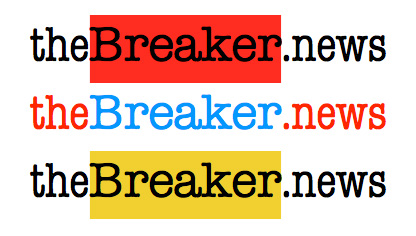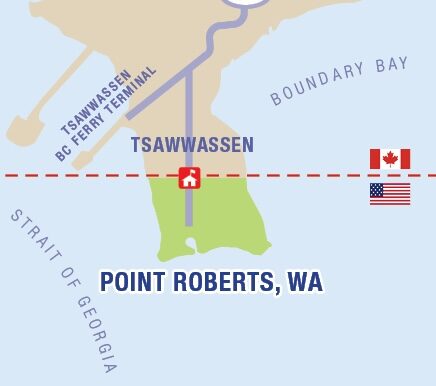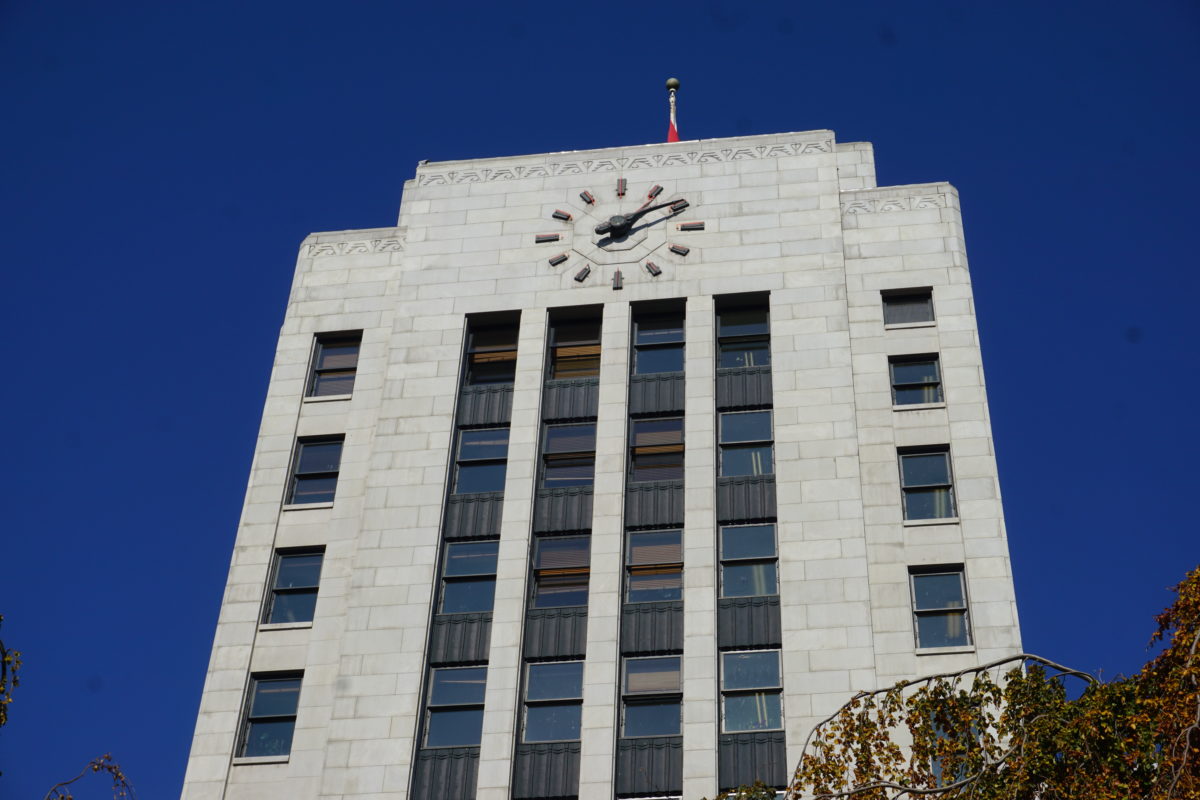
Bob Mackin
Vancouver’s empty homes tax helped the city achieve a $534 million surplus last year.
But some of that could be coming at the cost of citizens’ privacy, said Mayor Ken Sim’s former chief of staff.
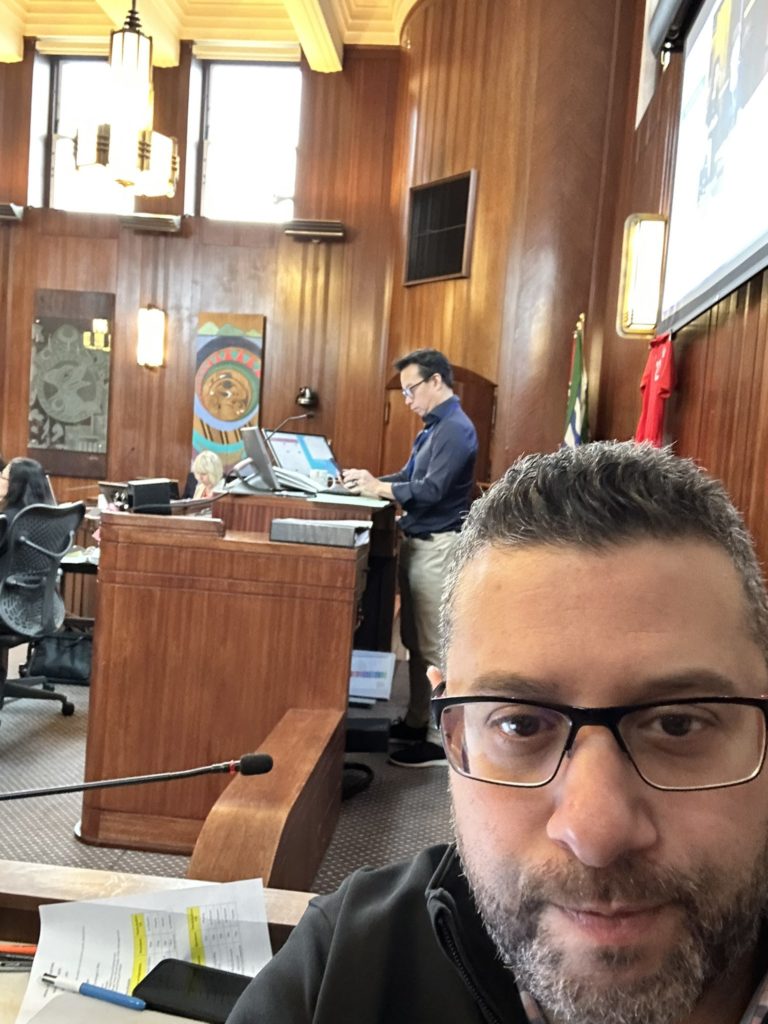
Kareem Allam (Twitter)
Kareem Allam went public on X, formerly known as Twitter, last week about the audit that he faces for the North False Creek condominium where he lives with his wife. He said city hall even wants to see his marriage licence in order to verify that he is the owner.
“None of the city’s business who I’m married to,” said Allam, who also managed the ABC Vancouver party’s 2022 election campaign. “I just thought that was a bit of an intrusion of privacy.”
Under a city bylaw, owners of residential properties declared or deemed vacant must pay a 3% tax on the assessed value. The city’s 2023 statement of financial information said it collected $43.3 million in empty homes tax revenue last year. The city’s online staff directory shows 21 people employed in the vacancy tax branch, 11 of whom are compliance analysts and two are supervisors. Vacancy tax manager Deepak Saini was paid $131,883 last year. Operations supervisor Michael Tham was paid $93,838.
Allam left Sim’s office after three months in February 2023 to return to his communication, polling and lobbying company, Fairview Strategy. He said he understands why the tax is charged, but has concerns about the audit methods, which could include a house visit and inspection of a kitchen or bedroom.
“It’s a gross overreach of municipal authority,” Allam said.
The provincial government has a similar annual declaration requirement under its speculation and vacancy tax, which charges a 0.5% rate for Canadian citizens or permanent residents who hold an empty residential property or 2% for foreign owners.
“The province already has this data and information,” Allam said. “The more times data changes hands and goes through different databases, the more vulnerabilities you create.”
City of Vancouver spokesperson Phoenix Lam said nobody on staff was available for an interview.
A statement from the city hall communications office said all declarations are subject to audit for up to two years after a declaration date and the audits are in line with provincial and federal tax program standards. If audited, owners are required by law to provide evidence to support their declarations. The city claims it “requests only the minimum number of documents required to verify a declaration.”
The city’s Vacancy Tax Compliance Policy Manual said that evidence reviews can involve a variety of documents, from a B.C. Assessment notice, homeowner’s insurance and cell phone bill to an ICBC vehicle registration and licence, utility bill and sworn affidavit.
The city’s website said the tax office “does not collect, use, disclose, store, secure, or dispose of personal information in any manner that is unauthorized by the [Freedom of Information and Protection of Privacy Act].” A limited number of privacy-trained staff are provided access to files on a secured system on city premises.
The city website does not mention the loophole in the privacy law. Section 33 sets out how a public body can disclose personal information, including sharing with another public body or law enforcement agency to assist in a specific investigation. That section allows, for instance, police to contact ICBC to seek information without a warrant about drivers and policyholders.
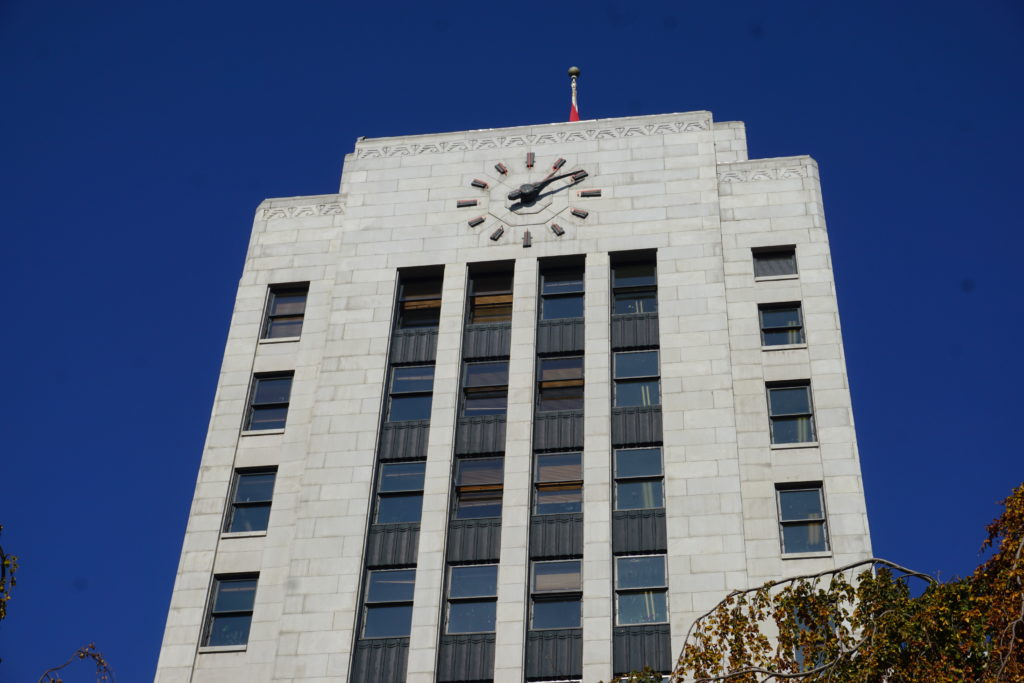
Vancouver city hall (Mackin)
In 2019, an adjudicator with the Office of the Information and Privacy Commissioner ruled that the Ministry of Finance was allowed to collect, use and disclose the name, address, date of birth, social insurance number and email address of individuals required to fill out the annual speculation and vacancy tax declarations. The adjudicator decided that, under Section 33, the personal information was necessary for administering the tax and allowed for disclosure to the Canada Revenue Agency.
Carson Binda, the B.C. director of the Canadian Taxpayers Federation, said his organization does not only disagree with the audits, but the tax in general.
“You create more housing by swinging hammers, not by hiking taxes on folks, folks living and working in cities like Vancouver,” Binda said. “So we would urge the City of Vancouver to scrap the empty homes to stop these invasive and unacceptable audits that put people at risk.”
City hall, then ruled by Vision Vancouver, began charging a 1% empty homes tax in 2017. It was scheduled to rise to 5%, but the ABC supermajority voted in May 2023 to keep it at 3%. It also voted to waive $3.8 million in taxes for developers who had empty or unsold units.
Real estate taxes have been one of the weapons employed to combat dirty money in B.C.
In 2019, an Expert Panel on Money Laundering for the B.C. Ministry of Finance estimated $5.3 billion was laundered through B.C. real estate in 2018. A report by the former head of the RCMP for Western Canada, Peter German, said almost 14,000 residential properties worth more than $16.1 billion were “owned by individuals or entities with service addresses outside Canada, a fifth of which are in high-risk jurisdictions for money laundering.”
German’s report also said 3% of B.C. titles were held by persons who list their occupation as student, homemaker or unemployed, and a quarter of them had clear title.
“These tend to be expensive houses, with 88 houses over $10 million that are apparently owned by nominees,” the report said.
Support theBreaker.news for as low as $2 a month on Patreon. Find out how. Click here.






